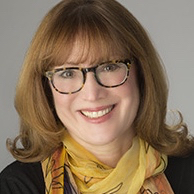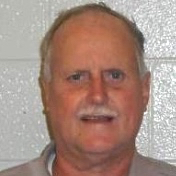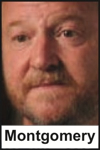Rascals case in brief
In the beginning, in 1989, more than 90 children at the Little Rascals Day Care Center in Edenton, North Carolina, accused a total of 20 adults with 429 instances of sexual abuse over a three-year period. It may have all begun with one parent’s complaint about punishment given her child.
Among the alleged perpetrators: the sheriff and mayor. But prosecutors would charge only Robin Byrum, Darlene Harris, Elizabeth “Betsy” Kelly, Robert “Bob” Kelly, Willard Scott Privott, Shelley Stone and Dawn Wilson – the Edenton 7.
Along with sodomy and beatings, allegations included a baby killed with a handgun, a child being hung upside down from a tree and being set on fire and countless other fantastic incidents involving spaceships, hot air balloons, pirate ships and trained sharks.
By the time prosecutors dropped the last charges in 1997, Little Rascals had become North Carolina’s longest and most costly criminal trial. Prosecutors kept defendants jailed in hopes at least one would turn against their supposed co-conspirators. Remarkably, none did. Another shameful record: Five defendants had to wait longer to face their accusers in court than anyone else in North Carolina history.
Between 1991 and 1997, Ofra Bikel produced three extraordinary episodes on the Little Rascals case for the PBS series “Frontline.” Although “Innocence Lost” did not deter prosecutors, it exposed their tactics and fostered nationwide skepticism and dismay.
With each passing year, the absurdity of the Little Rascals charges has become more obvious. But no admission of error has ever come from prosecutors, police, interviewers or parents. This site is devoted to the issues raised by this case.
On Facebook
Click for earlier Facebook posts archived on this site
Click to go to
Today’s random selection from the Little Rascals Day Care archives….
Click for earlier Facebook posts archived on this site
Click to go to
Today’s random selection from the Little Rascals Day Care archives….
‘Mindhunter’ series misguided in choice of role model

popsugar.com
Garcia
Oct. 19, 2017
“Though ‘Mindhunter’ at times seems like a fictitious nightmare, the new Netflix series is very much rooted in reality. Holden Ford (Jonathan Groff) is based on real-life FBI agent John E. Douglas, and Dr. Wendy Carr (played by Anna Torv) is based on Dr. Ann Wolbert Burgess, a pioneer in the treatment of trauma and abuse victims….
“The character molded after Burgess helps Ford and his partner legitimize their research with her sociological and science-backed knowledge….”
– From “The Influential Trailblazer Who Inspired Mindhunter’s Dr. Wendy Carr” by Kelsey Garcia at Popsugar (Oct. 16)
Yes, it’s just a TV character. But the depiction of Ann Wolbert Burgess as a trustworthy source of “science-based knowledge” should appall anyone who recalls her national prominence in igniting the “satanic ritual abuse” day care panic.
Most grievous for the Little Rascals defendants, it was Burgess who led a three-day conference in Kill Devil Hills just months before Bob Kelly’s arrest. The agenda: learning how to spot child molesters operating day-care facilities.
She has never apologized.
![]()
….Is APSAC finally ready to apologize to wrongfully prosecuted victims?

janetrosenzweig.com
Dr. Janet Rosenzweig
Oct. 22, 2016
“At APSAC’s June Colloquium, Paul J. Stern gave a presentation that clearly acknowledged your organization’s role in fostering the ‘satanic ritual abuse’ day-care panic of the 1980s and early ’90s.
“Mr. Stern, a prosecutor and longtime APSAC official, was only illuminating from the inside a reality long recognized among virtually all respected professionals and academics.
“I am writing today to request that the American Professional Society on the Abuse of Children formally renounce its advocacy of the ‘satanic ritual abuse’ myth and apologize to its victims. The ‘misguided ideas’ cited by Mr. Stern not only supported wrongful prosecutions and incarcerations, but also profoundly misled children, parents and the public.
“The reputation of APSAC will remain tainted as long as it fails to make amends for this seminal part of its history. If the International Association of Chiefs of Police can apologize for ‘the actions of the past and the role that our profession has played in society’s historical mistreatment of communities of color,’ then surely APSAC can similarly mitigate the damages caused by its own actions.”
– From a letter I sent to Dr. Janet Rosenzweig, executive director, American Professional Society on the Abuse of Children
![]()
Junior Chandler faces 30th year in prison

NC Dept. of Correction
Junior Chandler
April 4, 2016
Junior Chandler may be the last still-imprisoned victim of the “satanic ritual abuse” day-care panic.
Chandler was a driver for a Madison County, N.C., day care. The prosecutor alleged that Chandler, in the words of appellate attorney Mark Montgomery, “would drive off his route to a park by a river, strip the children of their clothes, troop them down to the river, put them in a rowboat, commit various sexual acts, put them back on the bus and take them home.”
Based almost exclusively on hearsay and no-longer-permissible expert “vouching,” Chandler was convicted in 1987 and sentenced to two life sentences. This month he will begin his 30th year behind bars for a crime that never happened.
![]()
N.C. law stacked deck against defendants
Oct. 17, 2011
The two largest ritual-abuse day-care cases – Little Rascals in Edenton and McMartin in California – bore many similarities but McMartin resulted in not a single conviction.
 I asked Mark Montgomery, who in 1995 successfully argued Bob Kelly’s case before the North Carolina Court of Appeals, why that might have been:
I asked Mark Montgomery, who in 1995 successfully argued Bob Kelly’s case before the North Carolina Court of Appeals, why that might have been:
“Each state has its own criminal laws, rules of procedure and evidence, etc. … Several features of the law in North Carolina gave prosecutors an advantage.
“First, the prosecution interviewed all the children attending Little Rascals Day Care. Most said they had seen no abuse. The law allowed the prosecution to withhold those interviews from the defense. And the defense was not allowed to interview the children. So all the jury heard were the stories of the 12 children who were the subject of indictments.
“Second, the law allowed the state’s expert witnesses to testify that they believed the children’s claims.
“Third, the defense was not allowed to conduct its own physical or psychological examinations of the children.
“Fourth, North Carolina had (and has) very liberal rules for the admission of hearsay by children in these cases. Almost anything a child says out of court can be used by the jury as substantive evidence of guilt. An effective prosecution strategy was to enlist the parents to elicit allegations of abuse. For months, parents, who were told their children had been abused, pleaded with their children to ‘disclose.’ Some eventually did. The prosecution then called the parents as witnesses to testify to what their children said, even if the children themselves did not testify.”











0 CommentsComment on Facebook